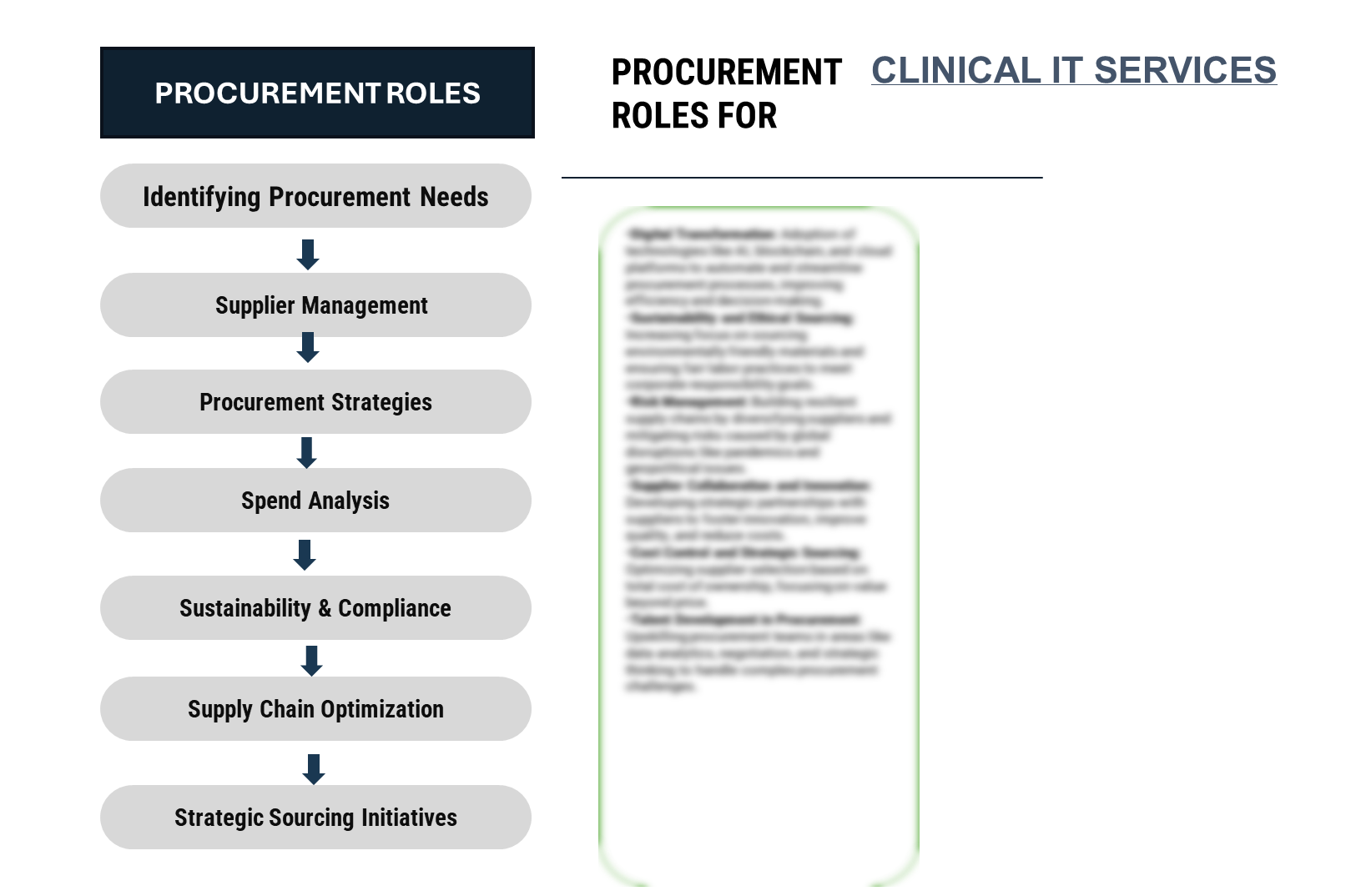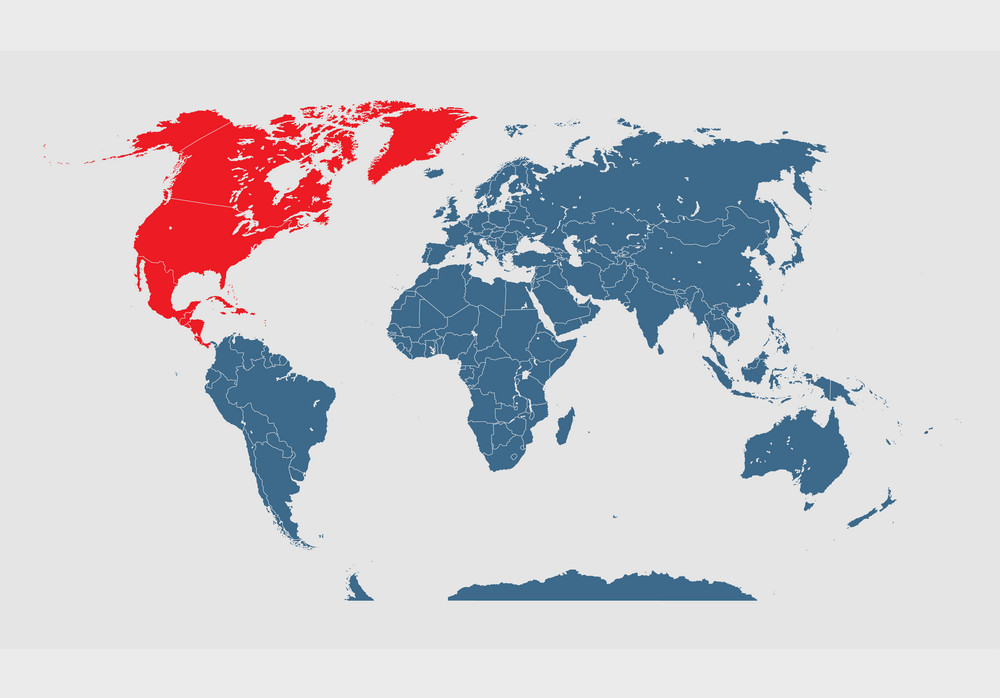Summary Overview
Market Overview
The Clinical IT Services market is undergoing rapid transformation due to the growing emphasis on digital healthcare solutions, advancements in data analytics, and increasing adoption of electronic health records (EHRs). This market encompasses a wide range of services, including clinical decision support, data integration, and regulatory compliance solutions. The market growth is fuelled by the rising demand for cloud-based platforms, personalized medicine, and enhanced patient care systems.Key Market Trends and Projections:
Market Size: The Clinical IT Services market is expected to reach approximately USD 87.4 billion by 2032, with a CAGR of 11.5% during the forecast period.
Growth rate: 11.5%
-
Sector Contributions:
Healthcare Providers: Adoption of EHRs and telehealth solutions to streamline operations.
Pharmaceutical Companies: Use of IT for regulatory compliance and clinical trial management.
Technological Advancements:Precision health, AI integration for clinical decision support, and blockchain for data security are driving innovation.
-
Regional Insights:
North America dominates the market due to advanced healthcare infrastructure.
Asia-Pacific is emerging as a high-growth region driven by increasing investments in healthcare IT and government initiatives.
Sustainability and Digital Transformation:
Efforts to reduce the environmental footprint of healthcare IT systems are gaining attention, with cloud-based solutions enabling energy efficiency.
Digital procurement tools are improving cost management and supply chain visibility, critical for managing large-scale clinical operations.
Growth Drivers:
Rising prevalence of chronic diseases necessitating advanced clinical support systems.
Increasing investments in healthcare IT, particularly in developing economies.
Expansion of telehealth services and remote patient monitoring.
Overview of Market Intelligence Services for the Clinical IT Services Market
The Clinical IT Services market is rapidly expanding due to the growing demand for digital healthcare solutions, including Electronic Health Records (EHR), telemedicine, and AI-powered tools. This transformation is driven by the need for better patient care, operational efficiency, and data interoperability. Companies like GE Healthcare and Athenahealth are leading the way, with significant growth in North America and Asia-Pacific regions. As healthcare providers adopt these technologies, data security and seamless integration remain key challenges. The market is expected to continue growing as these technologies enhance accessibility and improve healthcare outcomes.
Procurement Intelligence for Clinical IT Services Market: Category Management and Strategic Sourcing
To remain competitive in the Clinical IT Services market, companies are enhancing procurement practices by implementing category management strategies and leveraging real-time supply market intelligence. These approaches optimize supplier relationships, ensure compliance with healthcare-specific regulations, and enable cost-effective procurement.

Pricing Outlook for Clinical IT Services Market: Spend Analysis
The Clinical IT Services market exhibits a dynamic pricing landscape influenced by advancements in technology, increasing adoption of digital healthcare solutions, and evolving market demands. Pricing trends from 2024 to 2032 are expected to reflect the following factors:
Line chart illustrating the pricing outlook for the Clinical IT Services market from 2024 to 2032
Key Pricing Drivers
Technological Advancements: Increasing integration of AI, machine learning, and cloud-based solutions in clinical IT systems is leading to higher initial costs but enhanced operational efficiency.
Rising Demand: Expanding telemedicine and remote monitoring services have amplified the need for robust IT infrastructure, contributing to fluctuating pricing models.
Government Initiatives: Policies promoting digital health transformation, particularly in North America and Asia-Pacific, are driving demand and influencing market pricing.
Implementation Costs: High costs associated with the deployment and maintenance of advanced clinical IT solutions pose challenges, especially for smaller healthcare providers.
Cost Breakdown for the Clinical IT Services Market (2024-2032): Cost-Saving Opportunities
-
Software and Technology Licensing (45-55%)
Description: Includes costs for Electronic Health Records (EHR), Lab Information Management Systems (LIMS), telemedicine solutions, and other specialized software like billing and e-prescription platforms.
Trends: Increasing adoption of AI-driven tools and cloud-based healthcare systems is driving demand and costs. Partnerships, such as those between Stanford Medicine and Microsoft, highlight investments in generative AI for healthcare applications. Rising software customization and integration needs are key cost drivers.
Cost-Saving Opportunities: Shifting to subscription-based cloud services and leveraging open-source platforms can help reduce licensing expenses.
Labor and Human Capital (XX%)
Infrastructure and Data Management (XX%)
Maintenance and Upgrades (XX%)
Cost saving opportunity: Negotiation Lever and Purchasing Negotiation Strategies
In the Clinical IT Services market, cost-saving opportunities focus on collaborative purchasing, adoption of AI-driven solutions, and interoperability between healthcare systems to reduce manual processes. Vertical integration streamlines patient data management, while cloud-based infrastructures and energy-efficient hardware cut utility expenses. Strategic vendor management and performance-based contracts further optimize costs while ensuring quality service delivery. These measures enhance operational efficiency and support better resource allocation in healthcare IT
Supply and Demand Overview of the Clinical IT Services Market: Demand-Supply Dynamics and Buyer Intelligence for Effective Supplier Relationship Management (SRM)
The Clinical IT Services market is experiencing robust growth, driven by increasing demand for digital transformation in healthcare, the need for data interoperability, and the shift toward value-based care models. The demand for clinical IT services is particularly strong in hospitals, outpatient centers, and diagnostic labs, as they seek solutions for better patient care, efficiency, and compliance.
Demand Factors:
Digital Transformation in Healthcare: The move toward electronic health records (EHR) and telemedicine is driving demand for clinical IT services to enhance patient care and streamline administrative tasks.
Data Interoperability: There is a growing need for systems that enable seamless data exchange across healthcare providers, spurred by government regulations and patient demands for better access to health data.
Value-Based Care Models: Healthcare providers are adopting IT solutions that improve outcomes, optimize costs, and meet regulatory standards under value-based care models.
Cybersecurity Needs: With increasing digitalization, hospitals and healthcare providers require robust cybersecurity services to protect sensitive patient data from breaches and cyber threats.
Supply Factors:
Leading IT Service Providers: Large global players like IBM, Cerner, and Epic Systems dominate the market, offering comprehensive solutions that cater to healthcare providers' diverse needs.
Technological Advancements: Advancements in AI, cloud computing, and machine learning are enhancing the capabilities of clinical IT systems, providing better diagnostics, predictive analytics, and personalized treatment plans.
Regulatory Support: Policies such as the U.S. Affordable Care Act and the European Union’s GDPR are creating a favourable regulatory environment, stimulating demand for clinical IT services.
Supply Chain Challenges: The market faces competition between suppliers, with pricing pressures affecting both service costs and quality of offerings. Demand for high-quality solutions drives providers to innovate, while market volatility influences pricing and contract strategies.
Regional Demand-Supply Outlook: Clinical IT Services Market
North America: A Key Player in the Clinical IT Services Market
Leading Providers: North America, particularly the U.S., is home to major players in the clinical IT services sector, such as Cerner, Epic Systems, and IBM. These companies lead in providing EHR systems, telemedicine solutions, and health data management tools to healthcare institutions.
Strong Healthcare Infrastructure: The U.S. healthcare system's large-scale infrastructure, which includes hospitals, clinics, and outpatient care centers, drives significant demand for clinical IT services, contributing to the growth of the market.
Technological Advancements: North America is a hub for innovations in health IT, including the integration of AI, machine learning, and cloud-based solutions for improved patient care, predictive analytics, and data interoperability.
Regulatory Environment: The U.S. government’s regulations, including the Affordable Care Act (ACA), drive the demand for healthcare IT services, pushing healthcare providers to adopt digital solutions to meet compliance standards and improve patient outcomes.
Cybersecurity Focus: With increasing digitalization, North American healthcare providers are focusing on cybersecurity, enhancing the demand for IT services that offer robust data protection and regulatory compliance.

North America remains a key hub for Clinical IT Services Market and its growth
Supplier Landscape: Supplier Negotiations and Strategies for Clinical IT Services Market
The Clinical IT Services market is supported by a diverse network of global and regional suppliers providing essential technologies and services for healthcare institutions. These suppliers focus on delivering healthcare management systems, electronic health records (EHR), telemedicine solutions, cybersecurity, and data analytics tools. Strong collaborations between healthcare providers and IT service suppliers are crucial for implementing technologies that improve patient care and streamline clinical operations.
Key suppliers in the Clinical IT Services market include:
Cerner Corporation
Epic Systems
McKesson Corporation
Allscripts Healthcare Solutions
Athenahealth
IBM
Microsoft
Google Cloud
Key Development: Procurement Category significant development
Category |
Development |
Impact on Procurement |
Cloud-Based Healthcare IT |
Significant shift towards cloud-based solutions for EHR and patient management |
Enables scalability, reduces IT infrastructure costs, and enhances data security. |
Telemedicine Solutions |
Surge in demand for remote healthcare solutions due to COVID-19 |
Expands service delivery, offers remote monitoring, and increases patient access. |
Cybersecurity Enhancements |
Heightened focus on protecting patient data from cyber threats |
Increased investment in cybersecurity technologies to ensure HIPAA compliance and data protection. |
Data Analytics & AI |
Rising adoption of AI for predictive analytics and decision-making in healthcare |
Improves operational efficiencies, enhances diagnostic accuracy, and streamlines workflows. |
Integration of IoT |
Growth of Internet of Things (IoT) in healthcare for monitoring and diagnostics |
Facilitates continuous monitoring of patient conditions and improves healthcare delivery. |
Procurement Attribute/Metric |
Details |
Market Sizing |
The global Clinical Healthcare IT market is expected to grow from USD 20.61 billion in 2023 to USD 87.4 billion by 2032, registering a CAGR of 11.5% during the forecast period. |
Adoption of IT Services |
The adoption of electronic health records (EHR) and other healthcare IT solutions continues to rise, with significant growth in cloud-based solutions and AI integration to enhance clinical decision-making and data interoperability. |
Top Strategies for 2024 |
Key strategies include expanding AI and cloud integration, enhancing interoperability across systems, and focusing on regulatory compliance, particularly regarding data privacy. |
Automation in Clinical IT |
Automation in clinical IT, including AI-driven diagnostic tools and automated EHR systems, is becoming more prevalent. These technologies aim to reduce human error and improve operational efficiency. |
Procurement Challenges |
Procurement challenges involve ensuring compliance with data privacy regulations, managing high costs of IT infrastructure, and addressing the complexity of integrating legacy systems with new technologies. |
Key Suppliers |
Major players in the clinical IT services market include Cerner Corporation, Allscripts Healthcare Solutions, Siemens Healthineers, and Medtronic. |
Key Regions Covered |
Key regions include North America, Europe, and Asia-Pacific, with notable growth opportunities in countries like India and South Korea. |
Market Drivers and Trends |
Growth is driven by rising demand for improved patient outcomes, government initiatives promoting digital health, and advancements in AI and cloud computing. The healthcare sector is increasingly focused on integrating digital health technologies for better efficiency. |










